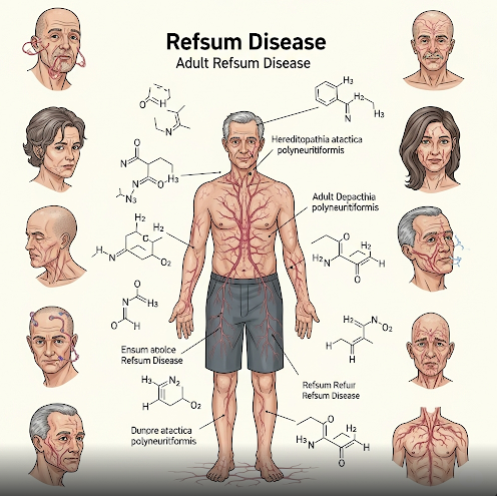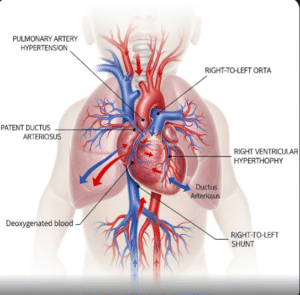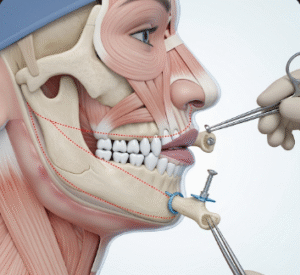Overview
Refsum disease is a rare inherited metabolic disorder characterized by the accumulation of phytanic acid in the body due to a defect in its breakdown. This buildup can cause progressive neurological, skin, and vision problems. In Korea, specialized metabolic and genetic clinics offer diagnosis, management, and supportive care for affected patients.
What is Refsum Disease?
Refsum disease is a peroxisomal disorder caused by mutations affecting phytanic acid metabolism, leading to its toxic accumulation in tissues. It manifests with a variety of symptoms involving the nervous system, eyes, skin, and heart.
Symptoms
- Progressive peripheral neuropathy (numbness, weakness)
- Retinitis pigmentosa causing vision loss
- Hearing loss
- Ataxia (loss of coordination)
- Ichthyosis (dry, scaly skin)
- Cardiac arrhythmias and cardiomyopathy
- Anosmia (loss of smell)
Causes
- Genetic mutations in the PHYH gene or PEX7 gene
- Autosomal recessive inheritance pattern
Risk Factors
- Family history of Refsum disease or related peroxisomal disorders
- Consanguineous parents (higher risk of inheriting recessive conditions)
Complications
- Progressive vision and hearing loss
- Severe neurological impairment
- Cardiac complications leading to sudden death
- Reduced life expectancy without treatment
Prevention
- Genetic counseling for at-risk families
- Early diagnosis and dietary management to prevent progression
Treatment Options in Korea
Diagnosis
Diagnosis involves clinical evaluation, measurement of phytanic acid levels in blood, genetic testing, and neurophysiological studies.
Medical Treatments
- Strict dietary restriction of phytanic acid (avoiding dairy, beef, and certain fish)
- Plasma exchange or plasmapheresis to reduce phytanic acid levels
- Supportive therapies including physical therapy and hearing aids
Surgical or Advanced Therapies
- No specific surgical treatment; management is primarily medical and supportive
Rehabilitation and Support
- Multidisciplinary care including neurology, ophthalmology, and cardiology
- Regular monitoring of neurological and cardiac status
- Psychological support and genetic counseling













